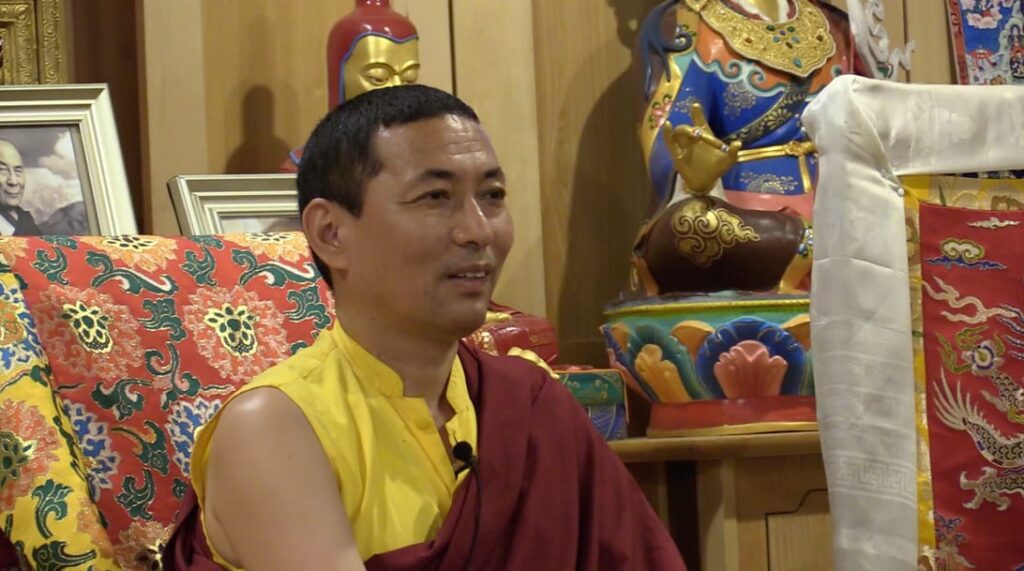Cultivating new habits is what meditation is all about. The most basic Tibetan term for meditation, gom (Tib. sgom), means cultivation, habituation or development. As we meditate, we train our minds to become more calm, clear, and flexible. In this short video teaching, Tulku Migmar Tsering explains why this is so important in the 21st century.
This video is in Tibetan with translation into English

Cultivating New Habits: Training Our Minds
These days we may have achieved some degree of material comfort. In many parts of the world physical conditions continue to improve. But at the same time, progress brings a lot more distraction, stress, and busyness. Many of us feel so busy that we don’t think we have time for cultivating new habits. We’re struggling to keep up with all the technology around us. But through meditation, we can actually take back control of our busy minds.
Cultivating New Habits: Start With Short Periods

When we hear the word “meditation” we may think that we can’t keep still for an hour and be calm. But, as Tulku Migmar explains here, the point of meditation is the process itself. When we meditate we are cultivating new habits bit by bit in short periods. We can start with just a few minutes a day. In those few minutes, we focus our minds on compassion, or kindness, or being mindful.
So, begin with just five minutes a day. Then, after you’ve spent some time with that habit, add another 5 minutes. And then slowly you can build up to 25 or 30 minutes of focus. We’re cultivating new habits, so we go slowly and gently. We can also focus our minds for a few minutes throughout our day. We simply remind ourselves to bring back a sense of carefulness or mindfulness. Changing our mental patterns takes time and in the beginning, it takes effort. But if we take this gentle building approach, we can discover that we’re already incorporating meditation into our lives in a relaxed and open way.
Additional Resources
We hope you may feel inspired to check our Samye Institute short course, Training the Mind: An Introduction. In these four units, Phakchok Rinpoche explains how our minds function. The course features video teachings, meditation instruction, reflection exercises, and suggestions for journaling.










Responses
[…] For more on this topic, follow other posts in this series at Mental Maintenance Creates Stability and at Cultivating New Habits for Busy Minds. […]